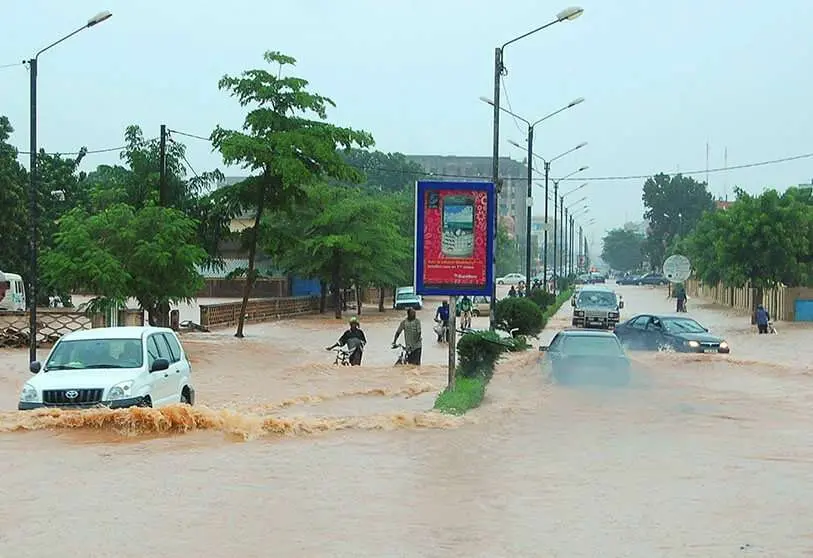Raging flood over the Sahel

It is right on our doorstep. It is a haven for jihadists, the scene of many old tribal struggles, and a launching pad for mass and illegal migration to Europe. It is the Sahel, the very wide Saharan strip linking the Atlantic and the Indian Oceans, from Senegal to Ethiopia. But, as we are used to hearing about such a vast region only to give an account of its coups d'état, internal wars and bloody attacks, its new and most current tragedy is going unnoticed: the deluge that has been flooding vast areas since June, which adds to its tragedy and misery the huge loss of crops, tens of thousands of homes destroyed and hundreds of thousands of displaced people who, in their desperation, will also consider trying to reach the Mediterranean.
It is the largest monsoon flood since 1929, causing severe flooding even in the capitals of the countries affected. Dakar, Abidjan, Nouakchott, Ouagadougou, Accra, Cotonou, Niamey, Douala and Khartoum have been hit by the floods since June, when the rains of unknown intensity began. The Niger River and all its tributaries have been flooded; the Nile has reached its deepest point in 100 years: 17.57 metres; Lake Chad has invaded its banks, penetrating dozens of kilometres into farmland, all of which has left a terrifying toll of death and destruction.
In the west of the Sahel, they are counting on this long and devastating climatic episode to be over by the end of September. This will not be the case in the east, where Ethiopia, Eritrea, Djibouti and Somalia, subjected to the Indian monsoon, will suffer from it until November. Instead, the whole region will have the common denominator of a brutal food crisis, caused by the considerable loss of its farmland.
Obviously, this phenomenon would confirm the certainty of drastic climate change as a result of global warming. But for the sake of weighting the analysis, many other factors could be taken into account, which are the cause of the present tragedy and those that are predicted to come in the near future.
Since the great droughts suffered in this part of Africa between 1970 and 1990, which accentuated the continent's backwardness, the Sahelian strip seemed to recover with the reappearance of periodic rains before the end of the 20th century. However, scientific studies warned political leaders that simply letting Mother Nature do the work would not be enough. Droughts had increased the aridity of the soil, while overexploitation was forcing the land to overwork in order to maintain the desired level of harvests. In addition, anarchy in construction, the massive exodus of rural populations towards the big cities and the poor level of maintenance of infrastructures have caught the countries that are suffering from these torrential rains completely unarmed: generally, for short periods, but of unknown intensity.
Analyses carried out by both international cooperation agencies and scientific bodies agree that the "chaotic" growth of these African countries is making a major contribution to accelerating and intensifying the scale of these disasters, whose destructive capacity will tend to multiply if drastic measures are not taken. This will not be either, according to these organisations, because there are not enough scientific studies that anticipate phenomenology, but that, owing to lack of money, the corresponding widespread corruption, in addition to insecurity and local wars, they are almost never carried out, or if they are, very partially.
Europe in general, and the countries on the northern shore of the Mediterranean in particular, needs to become even more involved in this very extensive African region, which is vital to its own security. Perhaps it should act more energetically to help the respective governments to redirect these anarchic and chaotic behaviours in the management of the territory. If the population is not encouraged to stay and take care of the land, we will all have to pay the consequences. For the time being, in these times of general impoverishment due to the coronavirus, we will have to contribute to alleviating the gigantic African food crisis. We will also have to help cure the malaria epidemic, which is already underway, and the cholera epidemic, which is expected to spread as soon as the waters recede. It is well known that tragedies and disasters never come alone.

